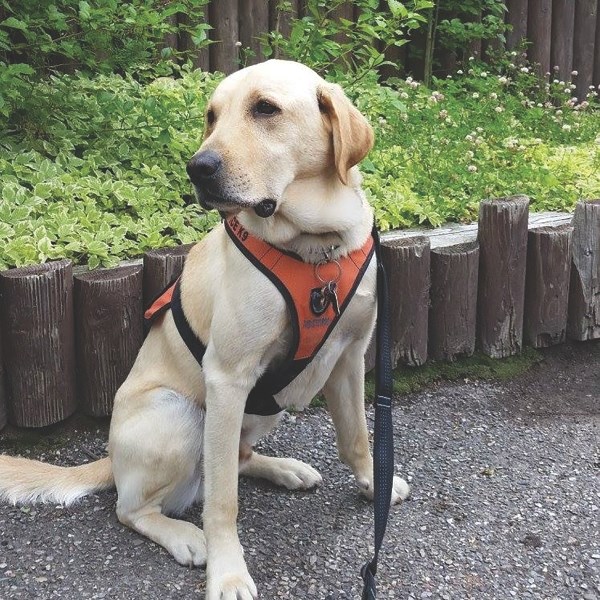WESTLOCK—The Westlock Royal Canadian Legion’s ladies auxiliary is helping make a difference in the lives of veterans with a recent $2,000 donation to the Alberta/NWT Command service dog program, which supports the Pacific Assistance Dogs Society (PADS) and the PTSD service dog program.
The donation was approved at the ladies auxiliary June 4 meeting and is the first time the ladies auxiliary has donated to it.
“Our purpose is to help the legion in any way that we can,” said ladies auxiliary president, Jeanne Roska. “There are individuals within our membership that were familiar with individuals who did get help with a dog. They felt it was so helpful. It changed their life.”
Royal Canadian Legion Alberta/NWT District 2 Commander Dave Basham said in an email the provincial command received information on the program in April and has considered it for some time.
“Alberta Northwest Territories Command has been looking at PTSD dogs for years, but with no national standard for PTSD dogs, it has been a challenge,” said Basham.
The cost for a dog is about $20,000, he noted adding a fund has been set up for branches in Alberta and Northwest Territories to contribute to, and when a total of $20,000 is reached, the command office will purchase a dog for a veteran.
“Each veteran is vetted as to need and is trained to work with these dogs,” he said, noting since April there has been six veterans on a waiting list for a service dog.
“We feel it’s such a worthwhile program,” said Roska, noting the emotional and in some cases, physical support the dogs provide veterans.
“We often think of veterans as being very senior people but we do have young veterans as well that have served in the forces and they come back and they have issues,” said Roska. “Quite often it’s with PTSD and the dogs definitely help them.”



